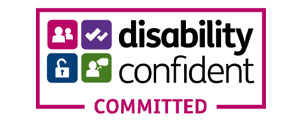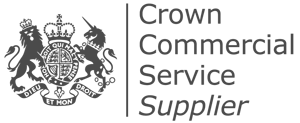Picking suitable Board opportunities
The truth is that many people don’t know how or where to get started when they first decide to become a non-executive. In our profession, we frequently hear candidates talking about non-executive roles as though they are all the same type and size of role, and as if the only thing that makes a difference is what that organisation does. This is not true and in fact it is extremely important to understand how boards differ when you are sourcing your first appointment. Here are five things to think about:
- Start with the existing Board membership. Even if the Board wants to change or broaden out its membership to be more diverse, it will tend to stay at the same level. Understanding the backgrounds of those currently round the table will help you to judge your competition (because strong applicants may have quite similar backgrounds) and assess whether your background is likely to be seen as a suitable fit.
Although by and large Boards are changing to become ‘flatter’ and less obviously aloof and hierarchical, the more formal and established Boards are often still populated by people who share very high levels of professional or academic accomplishment. You can decide whether that is for you, given your own knowledge in terms of what you are able to offer.
Conversely, boards that fly at a lower altitude are often more diverse and, because they tend to be less formal, they may be more open to first time non-executives whose broad professional and lived experiences may be useful. Lower altitude boards are a better bet for your first appointment: choose a board where the level and nature of expertise and experience around the table is more relatable for you.
- Avoid thinking that competition will be non-existent for voluntary Board roles. Especially when we are involved in transitioning people with private sector backgrounds to charity boards, we have observed a tendency to think that a role that is voluntary will either not be popular, or even worse, will be easy. Voluntary trustee roles can be very popular, especially for household brands. They can also be highly time consuming, and very exposed, especially if there are aspects of the organisation’s work that present complexities in how it is governed (for example, regulated services).
- Start small and build up from there. When you start out, look for roles that are smaller and less exposed in terms of risk. These are great opportunities for you to gain direct experience without the distraction of major challenges and overwhelming learning curves. For example, many people choose to start with a small or local charity board, or you may choose to become a school governor if the opportunity presents itself.
- Board culture really matters. We sometimes say that boards have four faces and in every instance the extent to which each face matters will be different, depending on the situation of the organisation. These four faces are: subject matter knowledge; capacity to govern well; capacity to represent the organisation externally; connection with audiences and diversity. You do not need to bring something in absolutely every category to be successful as a board member, but you may find it helpful to think about what you offer that may be especially strong in a certain aspect and to promote your application in line with that.
Sector also plays an important role in how the Board works, because an organisation’s position directly affects the role its Board needs to play. Public sector boards, for example, may be operating in risky and exposed circumstances, under a political and public spotlight, and need more people with governance expertise. NHS organisations may prefer representation from the local community; charities may need subject knowledge. So do think about what the priorities are for the organisation and its ability to get to its destination; this will give you plenty of clues as to what might matter most in its board members.
- Due diligence. Always turn over the stones before you accept any board role, and make sure you have the full story. Board roles are serious roles and it is important to understand and to be able to judge for yourself your comfort with certain aspects of the job. Get hold of the accounts. Talk to the Chair. See if you can speak to the CEO. Do a thorough media check.
Boards vary very significantly in size, profile, composition, strategic altitude and culture. Understanding this, and being able to read a board in way that helps you to know whether it is the right opportunity for you, is important.
Community cohesion, leadership and local government perspectives
A system-wide view of how community cohesion is being experienced, led, and constrained across different types of councils and places.
Rebuilding the scaffolding to repair communities
The MJ reports on Starfish’s survey and talks to councils about the scale of the challenge, and the need to appoint leaders who can build trust.
The new reality of visible leadership
Sunita Patel outlines how the need for community cohesion has presented an important challenge for today’s local leaders, and is affecting the way we recruit, support and retain them.
ACCREDITATIONS


ESPO is a public sector owned professional buying organisation (PBO), specialising in providing a wide range of goods and services to the public sector for over 40 years. Starfish Search has been awarded a place on ESPO’s Strategic HR Services framework (3S). Services we offer under the framework include: Lot 1, Executive and Managerial Interim Recruitment Lot 2, Executive and Managerial Permanent Recruitment.


Starfish are proud to be certified Disability Confident Committed. This scheme provides employers with the knowledge, skills and confidence needed to attract, recruit, retain and develop disabled people in the workplace.


Crown Commercial Service supports the public sector to achieve maximum commercial value when procuring common goods and services. In 2020/21, CCS helped the public sector to achieve commercial benefits equal to £2.04bn - supporting world-class public services that offer best value for taxpayers. Starfish Search has been named as a supplier on Crown Commercial Service’s Executive and Non-Executive recruitment. Services we offer under the framework include: Lot 3 - Non-Executive and Public Appointments.


Bloom, launched in 2012 is the UK’s leading marketplace for professional services. They provide an end-to-end solution for the procurement, contract management and payment of all professional services, via the compliant NEPRO³ framework. Their public sector clients have access to 20 professional services categories and over 4500 accredited suppliers. Bloom provides swift routes to market via either direct award or mini competition. Starfish is an accredited supplier to BLOOM; our services can be accessed via this framework - Executive and Non-Executive Search and Interim Management.
Join the starfish team
We hire people who bring insight, integrity and ambition to their work. If you’re ready to contribute to shaping the future of leadership and you want to explore our current opportunities please click the link below.
find out more